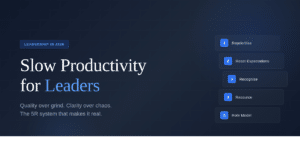Are you looking for ways to improve your business operations and maximize efficiency? Lean management may be the answer. By adopting the five key principles of lean management, you can streamline your processes, reduce waste, and improve your bottom line. In this article, we’ll explore these principles and how they can transform your business operations.
1. Define Value
The first principle of lean management is to define value from the customer’s perspective. This means understanding what your customers want and need, and delivering it to them in the most efficient way possible. By focusing on customer value, you can eliminate waste and improve your processes. Ask yourself, what value does your product or service provide? How can you improve it?
2. Map the Value Stream
The second principle is to map the value stream, which means identifying all the steps involved in delivering your product or service to the customer. This includes everything from raw materials to delivery. By mapping out the value stream, you can identify areas of waste and inefficiency, and work to eliminate them. Ask yourself, what steps are involved in delivering your product or service? Where are the bottlenecks?
3. Create Flow
The third principle is to create flow, which means ensuring that your processes flow smoothly and efficiently. This involves eliminating any obstacles or bottlenecks that may be slowing down the process. By creating flow, you can reduce lead times, improve quality, and increase productivity. Ask yourself, how can you improve the flow of your processes? What obstacles are slowing things down?
4. Establish Pull
The fourth principle is to establish pull, which means producing only what the customer wants and when they want it. This involves creating a demand-driven system, where production is triggered by customer demand. By establishing pull, you can reduce inventory, minimize waste, and improve responsiveness. Ask yourself, how can you create a demand-driven system? How can you respond more quickly to customer demand?
5. Continuous Improvement
The fifth and final principle is continuous improvement, which means constantly striving to improve your processes and eliminate waste. This involves creating a culture of continuous improvement, where everyone is encouraged to identify areas for improvement and take action to make things better. By embracing continuous improvement, you can stay ahead of the competition and achieve long-term success. Ask yourself, how can you create a culture of continuous improvement? What areas of your business can be improved?
Conclusion
By adopting the five key principles of lean management, you can transform your business operations and achieve greater efficiency, productivity, and profitability. Start by defining value from the customer’s perspective, mapping the value stream, creating flow, establishing pull, and embracing continuous improvement. With these principles in mind, you can take your business to the next level.












